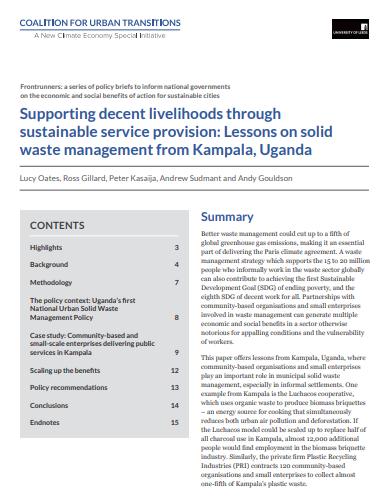Supporting decent livelihoods through sustainable service provision: Lessons on solid waste management from Kampala, Uganda


This paper offers lessons from Kampala, Uganda, where community-based organisations and small enterprises play an important role in municipal solid waste management, especially in informal settlements.
Better waste management could cut up to a fifth of global greenhouse gas emissions, making it an essential part of delivering the Paris climate agreement. A waste management strategy which supports the 15 to 20 million people who informally work in the waste sector globally can also contribute to achieving the first Sustainable Development Goal (SDG) of ending poverty, and the eighth SDG of decent work for all. Partnerships with community-based organisations and small enterprises involved in waste management can generate multiple economic and social benefits in a sector otherwise notorious for appalling conditions and the vulnerability of workers.
This paper offers lessons from Kampala, Uganda, where community-based organisations and small enterprises play an important role in municipal solid waste management, especially in informal settlements.